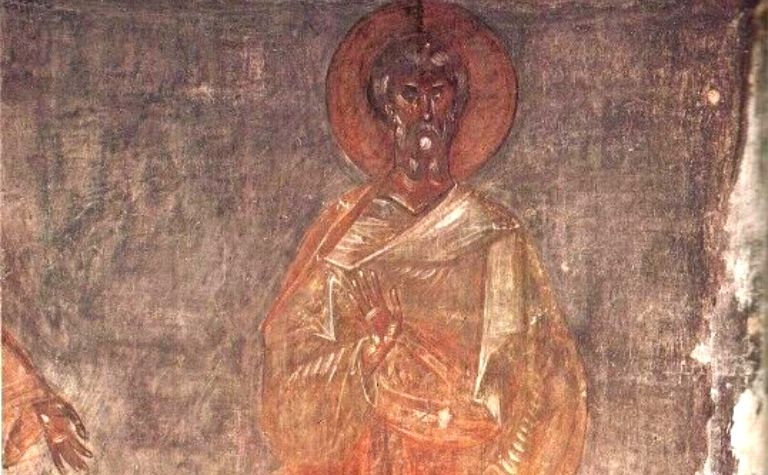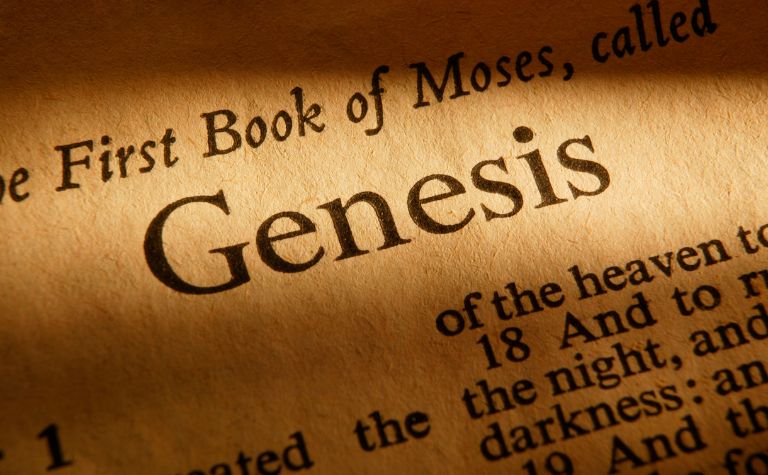Bible readers love to learn about Enoch even though Genesis doesn’t reveal much about him. The fact that the genealogy in Genesis 5 interrupts its pattern of names and ages to describe Enoch’s relationship with God has given readers pause for thousands of years. One question that readers of Genesis wonder about is when Enoch was born.
Enoch was born 622 years after creation, according to the genealogy in Genesis 5. Those who believe there are gaps in the genealogy and that the creation account doesn’t describe consecutive 24-hour periods don’t interpret 622 literally. Some scholars speculate that Enoch lived 5,000 years ago.
Where does the Bible mention Enoch’s birth year? What is the point of the genealogy in Genesis 5 in relation to Adam and Noah? What does the book of Hebrews say about Enoch? When did he die? Keep reading to learn the answers to these questions and others.
Also see Reasons Why Christians Don’t Read the Book of Enoch to learn more.

Where does the Bible mention Enoch’s birth year?
The fifth chapter of Genesis records the genealogy that lists the names and ages of Noah’s ancestors dating back to Adam. Scholars disagree on if the genealogy includes “gaps,” meaning the list skips multiple generations. Some contend that there may be gaps of thousands of years between certain names. Those who believe there aren’t gaps simply add up the dates in the list.
| Name | Birth Year | Death Year |
|---|---|---|
| Adam | 0 | 930 |
| Seth | 130 | 1042 |
| Enosh | 235 | 1140 |
| Kenan | 325 | 1235 |
| Mahalaleel | 395 | 1290 |
| Jared | 460 | 1422 |
| Enoch | 622 | didn’t die* |
| Methuselah | 687 | 1656 |
| Lamech | 874 | 1651 |
| Noah | 1056 | 2006 |
Also see Why Did God Take Enoch? to learn more.

Genesis 5: Tracing the Lineage Between Adam and Noah
Genesis 5 is a pivotal passage in the early chapters of Genesis. The genealogy bridges the gap between Adam’s story and his descendants (Ch. 3-4) and Noah’s story and his descendants (Ch. 6-9).
From Adam to Seth
3 When Adam had lived 130 years, he fathered a son in his own likeness, after his image, and named him Seth. 4 The days of Adam after he fathered Seth were 800 years; and he had other sons and daughters. 5 Thus all the days that Adam lived were 930 years, and he died.
6 When Seth had lived 105 years, he fathered Enosh. 7 Seth lived after he fathered Enosh 807 years and had other sons and daughters. 8 Thus all the days of Seth were 912 years, and he died.
From Enosh to Mahalalel
9 When Enosh had lived 90 years, he fathered Kenan.
10 Enosh lived after he fathered Kenan 815 years and had other sons and daughters.
11 Thus all the days of Enosh were 905 years, and he died.
12 When Kenan had lived 70 years, he fathered Mahalalel.
13 Kenan lived after he fathered Mahalalel 840 years and had other sons and daughters.
14 Thus all the days of Kenan were 910 years, and he died.
15 When Mahalalel had lived 65 years, he fathered Jared.
16 Mahalalel lived after he fathered Jared 830 years and had other sons and daughters.
17 Thus all the days of Mahalalel were 895 years, and he died.
From Jared to Enoch
18 When Jared had lived 162 years, he fathered Enoch.
19 Jared lived after he fathered Enoch 800 years and had other sons and daughters.
20 Thus all the days of Jared were 962 years, and he died.
21 When Enoch had lived 65 years, he fathered Methuselah.
22 Enoch walked with God after he fathered Methuselah 300 years and had other sons and daughters.
23 Thus all the days of Enoch were 365 years. 24 Enoch walked with God, and he was not, for God took him. (emphasis added)
Note: Enoch’s description breaks the pattern in the genealogy. First, it briefly mentions his faith, twice saying he “walked with God.” Second, every other description on the list ends with “and he died” except Enoch’s. Third, the text reveals that Enoch never died because God took him.
Hebrews 11:5 confirms this interpretation: “By faith Enoch was taken up so that he should not see death, and he was not found, because God had taken him. Now before he was taken he was commended as having pleased God.”
From Methuselah to Noah
25 When Methuselah had lived 187 years, he fathered Lamech.
26 Methuselah lived after he fathered Lamech 782 years and had other sons and daughters.
27 Thus all the days of Methuselah were 969 years, and he died.
28 When Lamech had lived 182 years, he fathered a son
29 and called his name Noah, saying, “Out of the ground that the LORD has cursed, this one shall bring us relief from our work and from the painful toil of our hands.”
30 Lamech lived after he fathered Noah 595 years and had other sons and daughters.
31 Thus all the days of Lamech were 777 years, and he died.
32 After Noah was 500 years old, Noah fathered Shem, Ham, and Japheth.
Also see What Does Enoch Mean? to learn more.

When did Enoch die?
As explained above, Enoch never died like the other men mentioned in the genealogy. However, Genesis does state his age when God took him.
| Patriarch | Genesis | Age |
|---|---|---|
| Adam | 5:5 | Thus all the days that Adam lived were 930 years, and he died. |
| Seth | 5:8 | Thus all the days of Seth were 912 years, and he died. |
| Enosh | 5:11 | Thus all the days of Enosh were 905 years, and he died. |
| Kenan | 5:14 | Thus all the days of Kenan were 910 years, and he died. |
| Mahalalel | 5:17 | Thus all the days of Mahalalel were 895 years, and he died. |
| Jared | 5:20 | Thus all the days of Jared were 962 years, and he died. |
| Enoch | 5:23-24 | Thus all the days of Enoch were 365 years. Enoch walked with God, and he was not,c for God took him. |
| Methuselah | 5:27 | Thus all the days of Methuselah were 969 years, and he died. |
| Lamech | 5:31 | Thus all the days of Lamech were 777 years, and he died. |
| Noah | 9:29 | All the days of Noah were 950 years, and he died. |
Also see Who Are the Sons of God in Genesis 6? to learn more.
References:
[1] Source
[2] Source
Related Questions
A serpent plays an important role in Genesis, the first book of the Bible, and in Revelation, the last book. Scripture also mentions them in other places in the Old and New Testaments that are...
The story of Noah, the flood, and the ark is one of the most iconic narratives in the Bible. Not only does the magnitude of the floodwaters leave readers awe-struck, but so does the faith that Noah...
